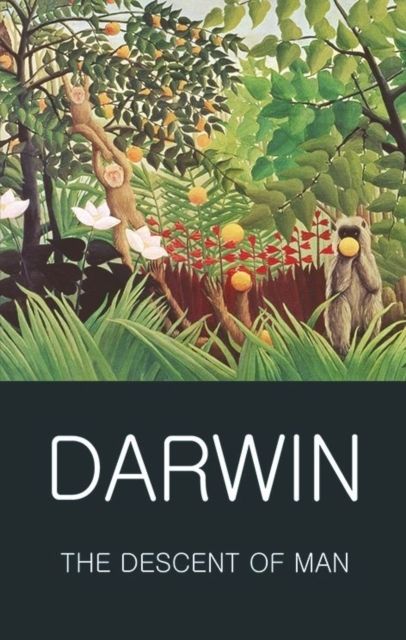The Descent of Man

Editorial Wordsworth Classics
Fecha de edición diciembre 2018 · Edición nº 1
Idioma inglés
EAN 9781840226980
464 páginas
Libro
encuadernado en tapa blanda
Resumen del libro
In The Descent of Man Darwin addresses many of the issues raised by his notorious Origin of Species: finding in the traits and instincts of animals the origins of the mental abilities of humans, of language, of our social structures and our moral capacities, he attempts to show that there is no clear dividing line between animals and humans. Most importantly, he accounts for what Victorians called the 'races' of mankind by means of what he calls sexual selection. This book presents a full explanation of Darwin's ideas about sexual selection, including his belief that many important characteristics of human beings and animals have emerged in response to competition for mates.
This was a controversial work. Yet Darwin tried hard to avoid being branded as a radical revolutionary. He is steeped in Victorian sensibilities regarding gender and cultural differences: he sees human civilization as a move from barbarous savagery to modern gentlefolk, and women as more emotional and less intellectual than men, thus providing a biological basis for the social assumptions and prejudices of the day.
The Descent of Man played a major role in the emergence of social Darwinism. This complete version of the first edition gives the modern reader an unparalleled opportunity to engage directly with Darwin's proposals, launched in the midst of continuing controversy over On the Origin of Species. Janet Browne is the author of the prize-winning biography, Charles Darwin: Voyaging and Charles Darwin: The Power of Place.
Biografía del autor
Nacido en 1809, Charles Darwin comenzó sus estudios universitarios en la Universidad de Edimburgo, donde se matriculó como estudiante de medicina. Después de dos años abandonó estos estudios y se matriculó en la Universidad de Cambridge, donde se graduó en 1831. Durante los años que pasó allí Darwin adquirió gran interés en la historia natural y se dedicó a recolectar escarabajos y otros insectos, además de observar la naturaleza en paseos y viajes en compañía de algunos de sus profesores y otros naturalistas. Esta pasión le llevó embarcarse en un viaje de cinco años alrededor del mundo a bordo del HMS "Beagle", que proporcionaría los materiales a partir de los cuales, a su vuelta a Inglaterra, daría forma a su revolucionaria teoría de la evolución por selección natural, que sería plasmada por primera vez en "El origen de las especies".








